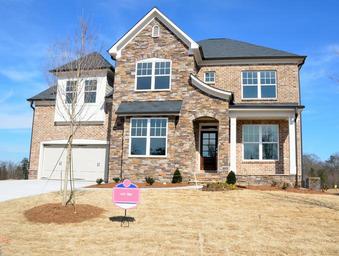When you’re preparing to buy or sell a home, it’s easy to focus on the big numbers—like the sale price or your monthly mortgage payment. But don’t forget about closing costs—those smaller (but important!) expenses that show up at the end of the transaction.
Whether you’re a first-time homebuyer or a seasoned seller, understanding closing costs can help you budget wisely and avoid any last-minute surprises.

What Are Closing Costs?
Closing costs are the fees and charges due at the closing table, separate from your down payment. These costs are paid by both the buyer and seller and typically total 2%–5% of the home’s purchase price, depending on the type of loan, location, and agreement terms.
Buyer’s Closing Costs: What You’ll Typically Pay
Here’s a breakdown of what buyers usually see on their final closing statement:
1. Loan Origination Fee
Charged by the lender to process and underwrite your loan.
Usually 0.5%–1% of the loan amount.
2. Appraisal Fee
Required by your lender to determine the home’s market value.
Typically $400–$700.
3. Credit Report Fee
Covers the cost of pulling your credit report during the loan application process.
Around $30–$50.
4. Title Insurance & Title Search
Protects you and the lender from any legal issues related to the home’s ownership history.
Ranges from a few hundred to over $1,000 depending on the price of the home.
5. Escrow Fees & Prepaid Items
This includes property taxes, homeowners insurance, and mortgage interest that needs to be prepaid.
These vary depending on your location and the time of year.
6. Recording Fees
Paid to your local county to legally record the property transaction.
Usually under $200.
7. Home Inspection (optional, but recommended)
Often paid before closing, but it’s part of the total out-of-pocket expenses.
$300–$500+
Seller’s Closing Costs: What You Might Owe
Sellers don’t usually pay as many individual fees, but they often cover some of the larger expenses:
1. Real Estate Commission
This is often one of the largest seller-related costs. In some transactions, sellers offer compensation as an incentive to the buyer’s agent, but this is completely optional and negotiable.
You can choose whether or not to offer compensation, and if so, how much. The terms can vary depending on the market, your strategy, and what you and your listing agent agree makes sense for your goals.
2. Title Insurance (Owner’s Policy)
In many markets, the seller pays for the buyer’s title insurance policy.
Varies widely, but often $1,000+.
3. Escrow Fees (Split or Seller Paid)
Depends on local custom and negotiation.
Often split 50/50 with buyer or fully covered by seller.
4. Outstanding Property Taxes or HOA Dues
You’ll need to pay any prorated taxes, dues, or utility bills through the closing date.
5. Concessions (if negotiated)
Buyers may ask for help with their closing costs, and this is something sellers can agree to as part of the deal.
Can You Roll Closing Costs Into the Loan?
Sometimes, yes! Buyers can often negotiate with lenders to roll certain costs into their mortgage—but that means paying interest on them over time. It’s a great option if cash is tight upfront, but always weigh the long-term cost.
Why You Should Always Ask for a Cost Estimate
Your lender will provide a Loan Estimate early on, and a Closing Disclosure a few days before closing. Review these carefully! And if you’re ever confused—ask your real estate agent to walk through it with you.
Bottom Line:
Closing costs are one of the most misunderstood parts of the real estate process—but they don’t have to be scary. When you know what to expect (and you work with professionals who explain everything clearly), you’ll feel a lot more confident when it’s time to sign those final papers.
Thinking of buying or selling? I’d love to help you understand the full picture—including the numbers—so there are no surprises.


 Facebook
Facebook
 X
X
 Pinterest
Pinterest
 Copy Link
Copy Link

